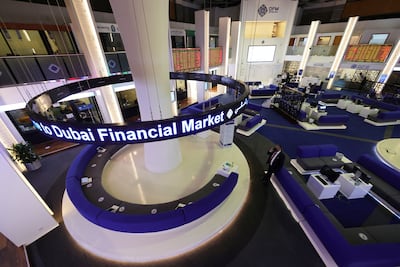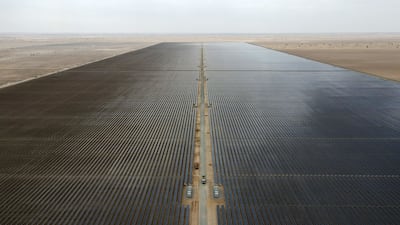Moody's Investors Service affirmed the Baa2 long-term issuer ratings of Dubai Electricity and Water Authority following the company's recent initial public offering announcement, confirming that its outlook on all ratings remains stable.
Dewa, the first government entity set to list on the Dubai Financial Market, plans to sell 6.5 per cent or 3.25 billion of its existing shares and is looking to raise as much as Dh7.96 billion ($2.2bn) from the IPO, which might be Dubai's biggest listing in 15 years.
Moody's said the decision to retain its ratings reflects its view that the business and financial profile of Dewa will remain consistent with a Baa2 rating level.
A Baa2 rating is the ninth highest rating given by Moody's and they are the second-highest in the non-investment grade bracket.
The utility has committed to pay dividends of at least Dh6.2bn per annum for the next five years, more than three times the average (Dh2bn) amount distributed during the past five years. That is on top of an extraordinary dividend distribution of Dh10bn in January 2022, which was fully funded through the issuance of an Dh10bn five-year term loan.
“These distributions, coupled with Dewa executing its material investment programme, will increase its leverage. We expect cash flow from operations pre-working capital — dividends/debt to hover around the 10 per cent to 15 per cent range, in the next two to three years,” Moody's said.
However, the stable outlook reflects Dewa's “low business risk profile and considers the significant credit linkages between Dewa and the government of Dubai”, it said.

Dewa, the state-owned provider of electricity and water in Dubai, operates as a vertically integrated multi-utility, with business activities including electricity generation, transmission and distribution, water desalination and district cooling.
As of December 31, it had total electricity generation capacity of 13,417 megawatts and a water capacity of 526 million imperial gallons per day through eight majority-owned and operated plants.
The company reported revenue of Dh23.8bn and assets of Dh169.5bn in 2021.
Its IPO will improve the utility's disclosures and oversight and, as a listed company, Dewa will also have easy access to the equity capital markets should it require additional funding, Moody's said.
Emirates Investment Authority, Abu Dhabi’s holding company ADQ, UAE Strategic Investment Fund, Multiply Group, Alpha Dhabi Partners and Investment Holdings have already been confirmed as cornerstone investors in the IPO, with total commitments of up to Dh4.7bn, Dewa said.
In anticipation of the IPO, the Dubai government also introduced a 90-day cash settlement for government payables to Dewa and a new subsidy mechanism that will compensate the entity for discounted tariffs to Emiratis.
Dewa will remain one of the few utilities in the region that does not rely on government subsidies to be profitable, Moody's said.
The utility's liquidity is “excellent”, with Dh9.2bn of cash and cash equivalents as of December 31, 2021.
“For the next 12 months starting April 2022, we expect Dewa to generate around Dh12.1bn of cash flow from operations, which in addition to Dh2bn of undrawn credit facility maturing in 2027, will be sufficient to cover capital spending needs of around Dh13.1bn, debt maturities of Dh3.3bn and common dividends of Dh3.5bn,” Moody's said.


